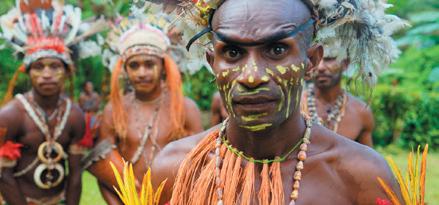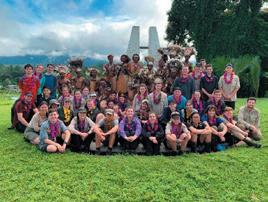Proudly sponsored by







It’s now been a year since clubs reopened after the most uncertain time in our history. At the RSL & Services Clubs Association, we’ve been focused on delivering you insights, providing professional development to give you the competitive edge, building the profile of RSL & Services Clubs as the ‘go to’ venue in our neighbourhoods and beyond, providing opportunities to connect, and putting a spotlight on our collective purpose of veteran and community engagement.
2022 has been very busy for us with a number of initiatives including;
• Launching our Mentoring Program
• Our ‘Careers in Clubs’ campaign and our ‘Destination’ RSL & Services Clubs campaign
• Deliver two Annual Conferences and a joint Gaming & Leadership Conference with LCA
• Our Diversity, Equity and Inclusion Forum
And as always keep you informed with webinars, Regional Forums, newsletters and this magazine.
Staffing shortages and supply chain issues continue to apply pressure on the industry and as we go into the busy period, remember to use innovate ways to source staff including your member newsletters, use signage in clubs to advertise general or specific roles, as well as your social media accounts. By using your existing staff as advocates and to provide referrals, you can share testimonials of working in your club and the broader industry.
Another initiative we launched recently was our partnership with the Universal Business School Sydney – the Graduate Certificate in Business Administration is a great foundation to develop leadership capability. Participants can undertake the Graduate Certificate only or can go right through to the MBA. This affordable qualification is in ‘executive mode’ so participants can undertake the face-to-face component over a long weekend. Knowledge is power –sign up you or your team today for 2023 and gain your competitive edge.
So as we round out a big year, take time to reflect on all that you have achieved over the last 12 months. We learn a lot more in tough times than we do when it’s smooth sailing – and we have certainly learned a lot!
Our people and our purpose are our secret sauce. As we move into our busiest period, share your community and veteran engagement programs via your promotional channels to profile our purpose and social impact to our largest audience. Our circle of influence is significant – let’s leverage it as best we can to keep patrons coming in and continue to win the hearts and minds of our communities.
Lastly, be sure to give yourself opportunities to unwind amidst the festive frenzy, and to thank your teams for their continued commitment to serving our members and communities.
DEAN THOMAS Chairman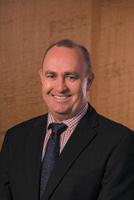

We don’t want to harm the majority of our communities to placate the minority. If sweeping changes are implemented that aren’t done in collaboration with industry, it could mean that the facilities and connections our community rely on, are affected.
The industry is committed to finding a digital solution. We need to wait for the outcomes of the digital wallet trials and see what they tell us, iterate the solution, and roll it out organically once the appropriate analysis, costings and impact assessments have been undertaken. Why rush a solution when we haven’t been able to solve it for five years or more.
We need solutions to help problem gamblers and to keep money launderers out of our clubs, but we’re yet to be convinced that cashless cards would achieve this outcome. The holes in the ‘plan’ are too vast.
I would encourage you to engage local Members to provide a more balanced view – implementing a flawed solution for the sake of optics is not the answer and could harm all of us. Let’s find solutions to these challenges together and implement them on realistic timelines that won’t negatively impact our communities.
If politicians and certain media outlets think they speak for the majority, we need to remind them of how many members and community groups we service and represent: the jobs we provide, the patrons we serve, the community groups we support and more. Our ecosystem casts votes – and we need to mobilise local Members of Parliament, our members, and community support so that the full extent of our network and influence is understood.
Unfortunately Australia has always been relatively apathetic in a political sense, so we need to awaken the silent majority and ask them to support the clubs who have been supporting them for so long. We provide sustainable and responsible gambling for our patrons, in addition to all of the other facilities and connections we provide in our communities. We stand by that.
In the meantime, double down on AML and RG compliance, prepare for the Gaming Code of Practice, explore facial recognition technology in due course, monitor the digital gaming trials and hopefully we can work towards an organic roll out of a digital wallet over time. Some of these may have some capital expenditure, so plan for that.
Iattended an industry roundtable recently hosted by the Responsible Gambling Fund and the Chair, John Dalzell, started the workshop by sharing the history of gambling. A quick Google search shows that gambling can be found as far back as 2,300 BC - and so for over 4,322 years, people have been enjoying taking a punt in one form or another through the ages as a form of entertainment. An example was however provided of industries that had seen major disruption in the past such as greyhounds – and wow, didn’t that escalate quickly.
We need to be using this pivotal time to influence a more balanced view of gambling. And to continue to put a spotlight on the important role of RSL & Services Clubs within our communities – both in our inception as meeting places for veterans and their families, but also as the glue that binds our communities.
With recent media scrutiny and political point scoring, we need to galvanise the industry to have a united voice where it counts. Particular media outlets are providing a one-sided debate and we need to cut through the noise be heard on some key issues. We need the powers that be to understand that there could be unintended consequences of imposing a cashless card, or other knee jerk options, in the wrong way at the wrong time.
It’s fair to say this festive period is going to be a gangbuster for clubs. It seems that patronage is up to ‘normal’ levels for the most part. So do what you do best – make your members feel welcome, create opportunities to welcome in new patrons, remind your ClubGrant recipients of the packages and facilities that you have available for Christmas parties, end of year P&C events, New Years events, Chinese New Year, school holiday programs etc.
For many clubs who are affected by flooding – your resolve and agility has been phenomenal. Our hearts go out to you – the weather events over the last few years have been relentless. Often when you are impacted, you’re also supporting your communities which is just what you do, but it doesn’t get recognised enough. Thank you.
As the final magazine for 2022, it is hard to believe where the year went. The volume of events in the industry has been staggering, the disruption to operations has been frustrating, the opportunities to adapt have been numerous – but one thing remains, our tenacity and commitment to serving our communities will continue to shine through. We will help our members and patrons connect through their highs and lows, celebrate their milestones, commemorate days of significance and we will continue to evolve as the thriving neighbourhood hubs that we have been for so long. As we round out a big year, thank you for being a part of the RSL&SCA and I look forward to a strong 2023.
MARGOT SMITH CEOBeginning with the Bergin Inquiry into Crown Casino and compounded by the disastrous outcome for The Star Casino in Sydney with the Bell Inquiry, it’s been a bad media year for the gaming industry. The Bell Inquiry found that The Star was involved in money laundering amounting to hundreds of millions of dollars and found it unfit to hold a casino licence in NSW. Similar inquiries in other states reached similarly adverse conclusions about money laundering on a large scale in casinos.
The misconduct of the casinos caused regulatory authorities to examine more closely gaming machine operations of clubs and hotels in NSW and a lengthy Investigation was carried out jointly by Liquor & Gaming NSW and the NSW Crime Commission.

Interestingly, the Crime Commission found that there wasn’t much money laundering going on in clubs and pubs in the “cleaning” sense (i.e. putting large amounts of cash into gaming machines but with little or no play) but there was evidence that substantial amounts as proceeds of crime was being spent on gambling in NSW hotels and clubs. Due to the difficulty of tracking cash transactions, the Investigation couldn’t pinpoint the exact amount but still estimated that billions of dollars of proceeds of crime were being channelled through gaming machines.
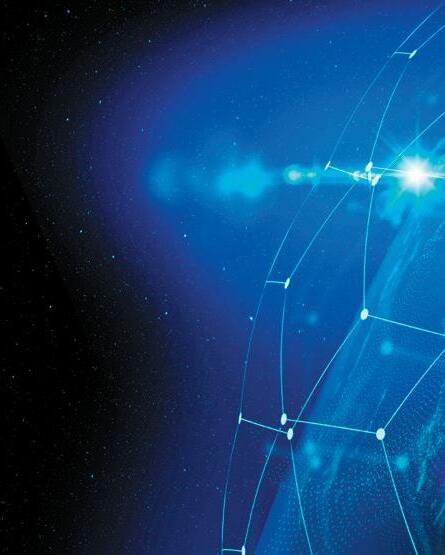
Unsurprisingly the findings caused a media sensation and resulted in calls for mandatory cashless gaming to be introduced in NSW.
Therefore a Bill to introduce harm minimisation measures in clubs has been held up in NSW Parliament as key independents seek to bring mandatory cashless gaming into effect as soon as possible. Ironically this has been counterproductive as there were several measures in the Bill to help problem gamblers such as making it legally clearer to use facial recognition technology in clubs to exclude problem gamblers. The Bill would also empower clubs to exclude members suspected of criminal activity such as money laundering or dealing with the proceeds of crime.
The Report incorrectly states there is no problem for clubs summarily excluding members on suspicion of criminal activity. Members have rights to due process and proper disciplinary hearings under law and a club’s constitution. Members often challenge board decisions to exclude, suspend or expel them – and can be successful.
The Investigation’s most dramatic recommendation is the introduction of a mandatory cashless gaming card in all NSW clubs and hotels. This is a recommendation in a vacuum however, which looks at the vast club and hotel industry from the very narrow perspective of trying to reduce or eliminate alleged money laundering and criminals dealing with proceeds of crime. It doesn’t factor that such a system may worsen problem gambling by driving gamblers online,
or the severe potential impact on the hospitality industry. The sector is a large employer, contributes to the social fabric across the state, and directly supports diverse community groups especially junior sports.
The Investigation states there’s no way of knowing how much is going through gaming machines as proceeds of crime; their “billions of dollars” estimate is just that - an estimate.
The detail of the cashless recommendations are concerning for clubs:
• customer identification requirements consistent with requirements under the AML/CTF Act;
• the ability to record amounts, times, turnover, losses/wins, and types of games played on an EGM against a player card;
• one to one links between player cards and a bank account and limits on changing accounts;
• the maximum amount of cash able to be loaded on to a player card in a single day be no more than $1,000; and
• systems in place to ensure that only a single player card can be used per person, and that the maximum cash-load limit apply and be monitored across all venues (pubs, clubs, and casinos).
Will the vast majority of casual punters sign up for such a stringent regime to have a flutter? The recent massive cyber hacks of Optus and Medibank will make them even more reluctant.

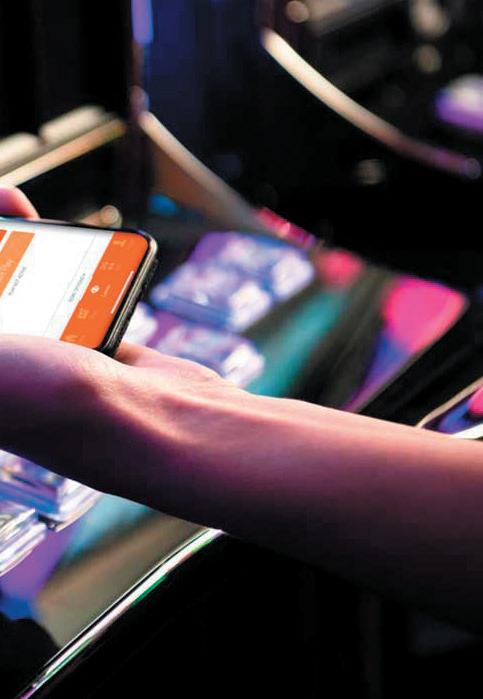
The Report also recommended changes to the Crimes Act which were ultimately enacted before the Report was even published! The Crimes Amendment (Money Laundering) Act 2022 was passed by NSW Parliament on 13 October 2022 - and is now law. It adds a “proceeds of general crime” definition to that Act which is broad and makes it easier for police or other authorities to prove a proceeds of crime/money laundering type offence.
Previously, the prosecution had to prove that the proceeds of crime were derived or realised directly or indirectly from the commission of a serious offence.
Now the prosecution only has to prove that proceeds of crime were wholly or partly derived or realised directly or indirectly from the commission of any offence against a law of NSW, the Commonwealth, any other State or Territory, or even the law of another country! This would have arisen partly from the police’s frustration in not being able to assist in recovering proceeds of crime when spent on gaming machines.
Another key recommendation of the Report is to amend NSW legislative and regulatory frameworks governing gaming machines to clarify that persons/entities with functions associated with them must take steps to prevent money laundering. Clubs are now on notice that police will feel affirmed in their belief that clubs are receiving significant proceeds of crime, with it being much easier now to prosecute clubs, pubs and employees if they suspect that patrons are gambling with proceeds of crime and are doing nothing about it.
Clubs will need to take reasonable steps to ensure that their gaming machines aren’t being used to launder money or receive proceeds of crime. How clubs will do this is difficult to imagine. Clubs however have an advantage over hotels due to their membership databases and interpersonal connections with members.
It is difficult to say how enforcement of the new Crimes Act provisions will occur. However, clubs must now undoubtedly be proactive rather than reactive in their approach to both suspected money laundering/proceeds of crime and RCG. A first step forward is to support and promptly adopt ClubsNSW’s Gaming Code of Practice.
Please feel free to contact Brett Boon, Arj Puveendran or Sherif Mouakkassa of Thomson Geer by email or phone for further enquiries
www.tglaw.com.au/corporate/industry_sector/ gaming-leisure/
With recent press and discussions around digital wallet, cashless gaming and the like gaining momentum, the regulatory sandbox for NSW digital wallet trials is in full swing.

IGT, with its globally recognised digital wallet solution, has been engaged with the regulator from the very beginning and is poised to begin its venue trial with Club York.
So how is IGT’s solution going to shape the future of cashless gaming in NSW clubs and hotels?
Users of wagering/sports-betting apps will find IGT’s digital wallet solution incredibly intuitive, particularly when funding the wallet. The one-step, single-wallet deposit approach will be familiar given the ubiquity of this funding method across all existing apps in the market.
Other solutions being trialled in the sandbox require funds to be transferred into one wallet, then pushed into another specifically for gaming – an unfamiliar and unnecessary extra step.
Both digital and physical (magstripe) cards work with IGT’s solution. Physical cards work as-is at all existing endpoints such as EGMs, POS, kiosks, carparks, etc. Digital cards also work at all these endpoints, replacing the insert/swipe of the magstripe with a tap.
And, both card options continue to work in conjunction with the addition of funding player accounts from a debit card.
With harm minimisation controls in place in the form of payment delays, IGT’s digital wallet solution will allow deposits to occur on the game floor. Once a deposit is successfully processed, a five-minute countdown timer commences until funds are available for gaming.
The user journey is truly mobile, unlike other solutions which require patrons to leave the gaming area in order to perform the funds transfer on their own mobile device.
IGT’s solution places additional harm minimisation controls in the players’ hands. Players can initiate formal exclusions or simply take a break from gaming where their cashless account is disabled for a user defined 24+ hours.
Players can also view their spend and play activity and set limits on spend across multiple time periods.
“We are ready to hit the ground running with our digital wallet solution operating across all 110 EGMs at Club York” said IGT Director Systems Product & Sales, Asia Pacific, John van Waard. “Our digital wallet offering is based on IGT’s tried, tested and proven global product, which has definitely put us at an advantage in terms of having the right technology on hand to develop a seamless solution that suits our local market requirements.”
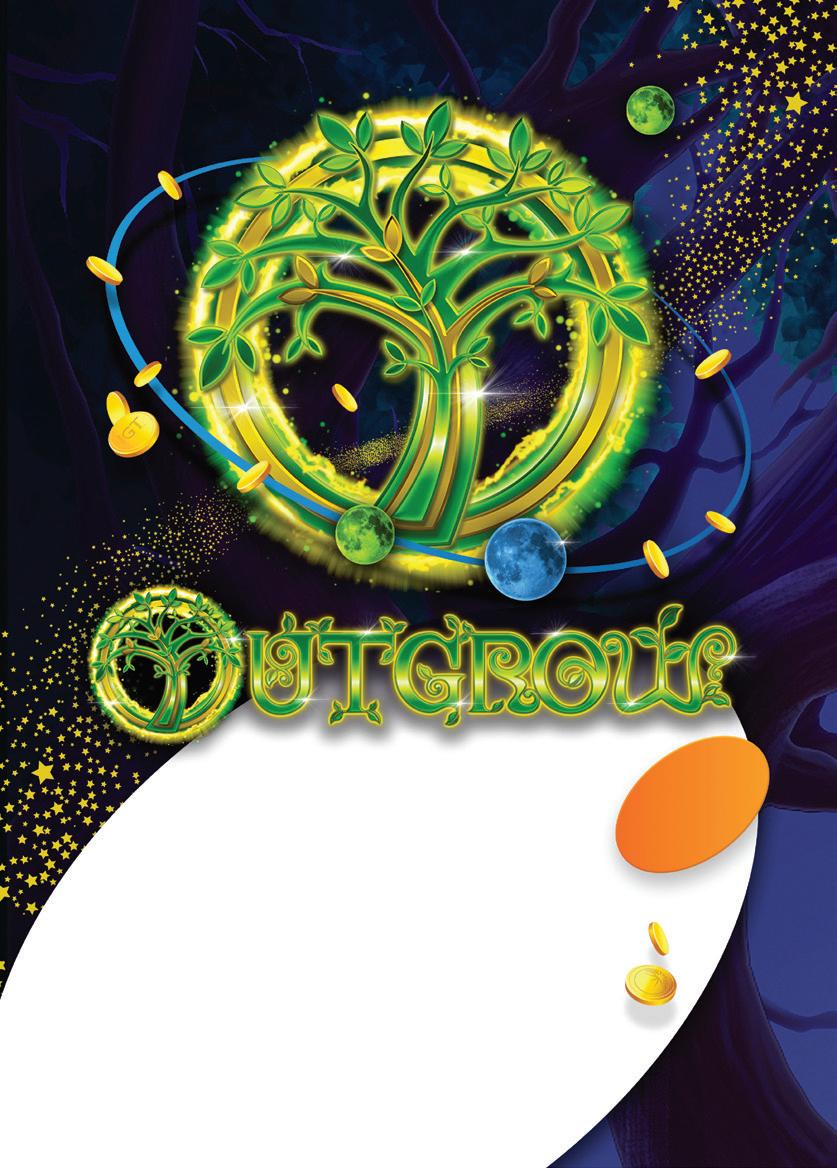
vs transactional’ DEI and Andy Abey, Head of Corporate Affairs, Castle Hill RSL Group.
First up, our delegates were welcomed by James Griffin MP, who is the Minister for Environment and Heritage, and Member for Manly. In his opening address, Mr Griffin shared how diversity, equity and inclusion are powerful assets and how we all need to understand and learn more about DEI through attending forums and listening to inspirational speakers sharing their stories.
Our first inspirational speaker was Dr Kerry Chant, speaking on the power of diversity. A highlight for many in attendance was Dr Chant’s presentation was a highlight for many as she shared her learnings from the COVID pandemic and the importance of knowing your audience.
Dr Chant said, “In having DEI as one of your businesses core values, I believe strength can lie in the differences of people and potential can be nurtured in anyone with the right resources and environment”.
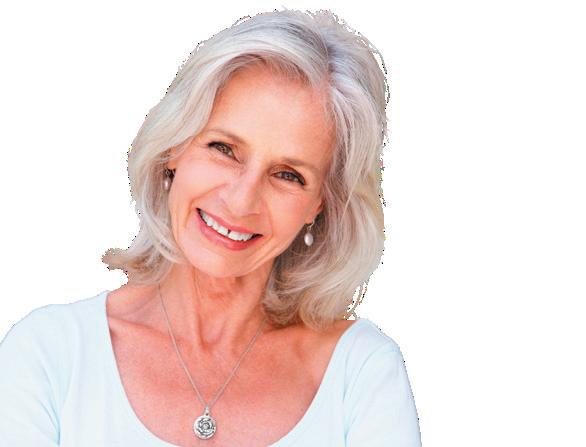
By fostering inclusive cultures, you also benefit from workforce diversity, enabling innovation, improving productivity, and driving better service delivery for the people in your community.
Our DEI forum was a safe place to learn and ask questions about the many different aspects of DEI. All presenters, panellists, and delegates challenged us all to improve our ability to confidently make a difference - and create a foundation of diversity, equity, and inclusion in our personal and professional life.
Carly Brown, Senior Director People & Culture APAC, Aristocrat presented on ‘Transactional vs Transformational DEI’ – how to move beyond a metrics only approach.
In her presentation, Carly said: “the behaviour you walk by, is the behaviour you accept.” I’ve also heard a similar version before by David Morrison, retired Lieutenant General of the Australian Army and current chair of Diversity Council Australia, who notes: “The standard you walk past is the standard you accept”.
This statement resonated with me. Like many, I left the event feeling inspired, empowered, and committed to doing my bit to ensure the people I work with feel safe to bring their WHOLE selves to work every day.
But beyond the metrics – what do we need to embed DEI, and take it from a tick a box exercise to true transformational change?
The first panel session for the day was on ‘Diversity, Equity & Inclusion Done Well’, which saw panellists Jacqui Davis, DEI Consultant, Organisational Development, People & Culture at AustralianSuper, Michaela Chan, Chief Marketing Officer, WestHQ, Arjunan Puveendran, Partner from Thomson Geer and Amanda Stephens, General Manager, Legal & Human Resources from West HQ take the stage.
Together the group shared how DEI can be done well and their own lived examples. The common thread from the panel was to empower and create a safe space for employees to be themselves.
“Diversity, equity, and inclusion is not only the right thing to do - it is also the correct business decision. DE&I increases employee engagement, which is linked to customer satisfaction and improved financial performance”. Jacqui Davis, DEI Consultant, Organisational Development, People & Culture at AustralianSuper.
Inclusive workplaces are ones in which people feel they are valued, respected, they can speak up and feel safe to bring their whole self to work, have access to equal opportunities and are empowered to make a genuine contribution.

By sharing our knowledge and best practices on DEI to embed a culture of inclusion across the club industry we must be dedicated to better understanding and unlocking this value by drawing on the shared experiences of DEI leaders from some the most respected clubs and businesses.
During the forum, our presenters and panels explored the WHY as well as the obligation clubs today have in shaping the future and doing better when it comes to DEI.
Andy Abey, Head of Corporate Affairs at the Castle Hill RSL Group presented a case study on ‘Member and Community Engagement’ - planning and celebrating your DEI initiatives.

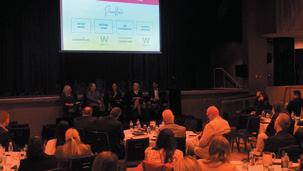
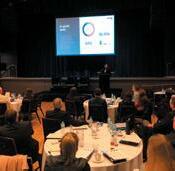
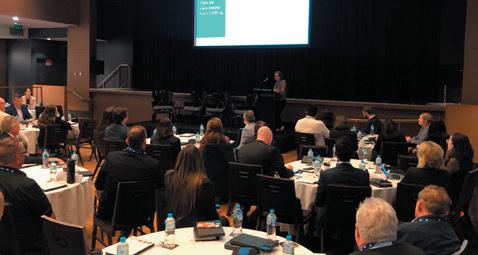
In her presentation, Andy asked the question “How does your club strategy support DEI, and how do you foster an environment that optimises diverse thought, equitable practice, and inclusive communities”?
She focused her presentation on the transformation of Parramatta RSL, which is now known as Club Parramatta. There was so much history respectfully honored but also a future looking approach for the community. Clubs wishing to ‘champion’ DEI through education and the amplification of stories and messages in their community is the key to both growth and future-proofing your business.
Her passion for the importance of DEI in the industry, and in particular clubs as a means to attract members, customers, and staff resonated with the audience. Andy said, “Member and community engagement is the secret sauce. Get it right and the rest will follow”.
RSL & Services Clubs reflect the communities in which they are based. That is why DEI are so important for us all and for increasing membership. So, while clubs are diverse in what they do and the people it connects with, that diversity sometimes isn’t translating into a diverse membership base.
While clubs should work to actively expand and deepen diversity across its membership, the difference between diversity, equity, and inclusion is the action a club takes to make those diverse individuals feel welcome and valued with other members and the overall club.
It’s very easy for clubs to say, ‘I am a diversity champion’. Or for a business to say they know DEI is ‘the right thing to do’. But change is hard. Big change especially, which is what we need.
Now is the time for us all to start thinking about the role we each play in shaping a future where DEI is embedded in everything we do. From inclusive and thoughtful hiring to inclusive marketing, or to speaking up on professional platforms like LinkedIn. Every one of us needs to take responsibility.
There are many strategies your club can employ. But for any to work, you must accept that change is vital to your continued success. We can admire clubs who already have a DEI policy; now, it’s up to senior leaders to work it down to the club level.
Most clubs and businesses seem to be in the early stages of their DEI journey and perhaps, like them, you are wondering what to do next? How do I start my DEI journey and what are the benefits?
"In the first forty days over 52,000 (fifty two thousand) people have been asked directly the question, “Are you OK2PLAY?”
If numbers are your thing, the recent introduction of OK2PLAY? at Sporties Moorebank has yielded some telling results.



In the first month of implementation, almost 8,000 Sporties members were asked to simply answer, “Are you OK2PLAY?” at various, convenient points throughout the venue, and in simple terms, 99.4 percent of players have felt safe and secure to continue their venue experience without any further discreet intervention.


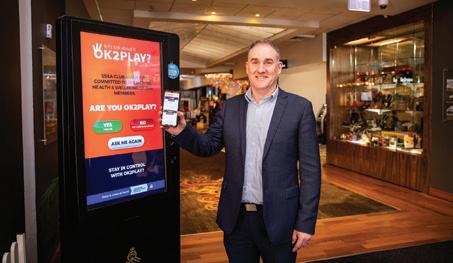
That’s almost “perfect” numbers, but it’s the remaining less than one percent that paints the success of the OK2PLAY? technology.
This portion of members who responded that they did not feel OK2PLAY? were approached discreetly by Sporties Senior staff, who facilitated in-venue assistance within an average time of 36 minutes.
Jeff Gibbs, CEO of Sporties, observed, “We had 115 of our members who responded, ‘Ask Me again’, and when OK2PLAY? technology checked in with them a second time they responded they were OK2PLAY?
“By introducing the OK2PLAY? technology into our venue, it allows us to continue to support our customers and staff, support player protection, and also support the whole community. We would like to continue to build on the current measures we have already here at Albury SS&A Club for both our patrons and staff, and by implementing this technology, it will allow us to do that.”
“This technology makes it easier for our patrons to reach out to us if they have a problem. It also makes it easier for our staff in the manner that first approach and first contact is made via a discreet and seamless system.


Mr Mario Machado, CEO, Hornsby RSL

“The purpose is for members to feel secure, and if they do have a problem and they are a bit shy in talking to our staff and trained personnel, this is a way they can go to an easy touch and get help fairly quickly.”
Mr Edward Camilleri, CEO, Central Coast LeaguesIn the first forty days over people have been asked directly the question, “Are you OK2PLAY?”
Mr Gerard Darmody, CEO, Albury SS&A Club
Big Screen Video (BSV) are thrilled to solidify our partnership with the RSL & Services Clubs Association. We were delighted to welcome delegates at September’s conference in Adelaide and are looking forward to working closely with the association in 2023 and beyond.


With the RSL & Services Clubs Association supporting its member organisations in serving veterans and the wider community and providing spaces to meet and share their stories; and with BSV’s technological prowess and experience in bringing spaces to life, this makes for a perfect partnership. BSV is truly proud to partner with an organisation that holds community and connection at that heart of what they do.
Since its inception, BSV has aimed to set the standard in LED installations across Australia and New Zealand. Our enduring commitment to quality and exceptional service for our clients, from initial project discussions to on-going maintenance of an LED solution, has led BSV to be Australia’s leading LED supplier. We are incredibly proud to call over 400 hospitality venues (and over 1,500 across all industries!) across the Australia and New Zealand home.

Our 10+ years of experience in the LED industry allows BSV to offer a market leading level of product knowledge and assurance to clients, that is truly unmatched. A portfolio of work that stretches a variety of installation environments, offering unique and creative solutions, is testament to the BSV team’s understanding of LED product and application.
Be it LED Screens, Signage, Gaming Room activations or content creation, BSV has the industry leading understanding, skill and experience to provide a tailored solution, realising your club’s vision.
We offer a rigorous Quality Control Framework, which sees BSV as the only Australian LED supplier to employ a Chinese based, QC operation. Our on-the-ground team ensures BSV’s product offering meets the demand of Australian conditions, specifications and customer requirements. This is coupled with an ‘Always On’ Service Department, providing local, on-going support. BSV LED is repaired in Australia, by BSV trained technicians. BSV’s Quality and Service Frameworks aim to minimise service timeframes and maximise the lifespan of any BSV LED installation. BSV’s market leading reputation has seen our recent expansion into North America, establishing BSV Digital Displays first office and warehouse in early October in Las Vegas. Our dedication to continually leading the charge in this industry by exceeding quality, service, sustainability, and environmental measures has been a recipe for success. We want to change perceptions on what quality truly means in the AV sector, globally.
BSV are proud of our achievements. From being the first LED supplier to create an end-of-life screen recycling program, having the first Screen Monitoring facility in the country, being the only Australian LED supplier to hold ISO certifications in Environmental Management, Quality Management & WHS Management Systems and so many more milestones; our greatest achievement has been bringing your spaces to life over the past decade.
If you are interested in what BSV can offer to your club and community, give us a call on 1300 244 727 or email info@bigscreenvideo.com.au to organise a catch up with one of our nationwide team.
It’s no secret that Australian Defence Force veterans have their fair share of struggles when it comes to mental health post service. But are we working on the right solutions?
For 2 decades we pointed the finger at PTSD. Using American research, conducted on American sample groups, to solve Australian problems. We created some amazing interventions for PTSD and rolled them out for the Australian Veteran community. But the mental health and suicide stats didn’t move.
We have created a system where psychologists have a predetermined diagnosis model for Veterans. They ask 3 basic questions on first consultation with a veteran. When did you join? Where did you go? What are your symptoms?
Knowing that I had joined the army in my early 20s, Deployed to Afghanistan and showed signs of anxiety and depression. Diagnosis, PTSD. No questions about my childhood. No questions about my current relationships with family and friends or social connection. No questions about lifestyle or physical health patterns. What if PTSD isn't the core problem?
In 2018 Swiss 8 conducted a survey of recently transitioned Veterans. All of whom had spent time on operations with the defence force and all of whom had experienced mental health decline post service.
The most alarming result of this survey was the answer to the question “What do you think caused your mental health decline post service”
THE TOP 4 RESPONSES WERE:
1. Loss of identity (84%)
2. Disconnection from tribe/mates (81%)
3. Loss of purpose (62%)
4. And Failure to maintain a healthy routine. (62%)
PTS relating to a traumatic event was below 7%
After digesting the new information around the cause of mental health decline, one fact was obvious, these are not Veteran specific problems. Disconnection, loss of identity and purpose, these are human problems.
This was a revolutionary lesson as it answered the current question many psychologists are facing; why is there still such a mental health and suicide problem in defence members and veterans who never deployed?
With this new information in our arsenal, Swiss 8 went about creating mental health training courses for humans, predominantly aimed at high risk males. Facilitated and led from the front by Veterans who had successfully transitioned and who had upskilled themselves to become Swiss 8 Recalibr8 coaches.
The Recalibr8 courses are delivered in RSL and Leagues clubs around the country. Teaching habit building, identity formation, finding purpose and educating on mental health signs and symptoms to Veterans and community groups.

Having Veterans deliver this training empowers the veteran community to shed the broken veteran narrative and start offering service to the community again. Using the lessons we have learned through some extremely adverse lived experience, it gives us a purpose while having the unique ability to achieve trust and cut through with blue collar and hyper masculine male demographics.
In a post covid world, with economic uncertainty and heightened anxiety in our communities, the Reclibr8 course is a much needed resource for the Veteran community, Clubs, and local community groups. It is a great example of Veterans leading from the front in mental health care and training while reinforcing the fact that we are not broken, we have much more still to offer.
The mission of the RSL & Services Clubs Association is to “To inspire and unite communities by recognising veterans’ service” – and the way we do this is via the Association’s charitable arm, The Veterans Benevolent Fund.
Since its inception almost five years ago, the Veterans Benevolent Fund has gone from strength to strength. With your support, we have helped a range of veterans’ service organisations – from wellbeing programs, service dogs, horse trek programs, disaster relief, crisis funds and much more.
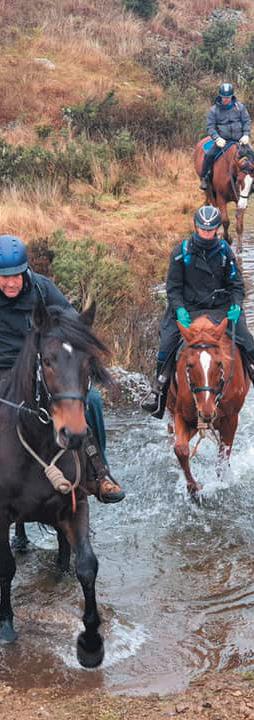

the wellbeing of our unsung heroes and their families
Over that time we have raised $836,536, but actually since July this year we have raised a record number contributing to almost 40% of this five year total. Thank you for your support and faith in what we are trying to achieve.
The Veterans Benevolent Fund Board set a target in 2021 to raise $1,000,000 over the next three years. From 1 July 2021 the VBF, thanks to our club supporters, has raised $453,831 of that total. But as previously mentioned, since the start of this financial year, we have raised a record amount. So we’re at 45% of our $1M target with over 18 months to go.
With your help, by 30 June 2024, we need to raise another $546,169 and we’re confident we can do it together. We complement your local contribution to veterans services, to help you have a bigger impact, not just in your backyard. Together let’s make a difference – where support needs to go.
Thank you to all clubs who have contributed to the Veterans Benevolent Fund. For any clubs who have been thinking about supporting the Fund, reach out to Margot Smith or Kylie Gordon at the RSL&SCA.
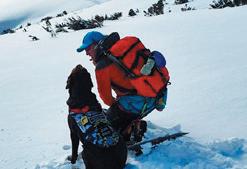
You’ll find her in the snow, inside a velodrome, hiking in a forest, walking in the sand dunes, resting atop a mountain or on base at the Australian Navy Offices in the ACT. She’s even spent time in prison. Gigi is a Defence Community Dog. An Assistance Dog specifically trained to support the mental and physical needs of a Defence Force Veteran with PTSD; wherever she goes.
A rescue dog who lived with and was trained by an inmate at Bathurst Correctional facility for more than 250 hours, Gigi graduated as a highly trained Assistance Dog in 2021 and was paired with Veteran Dog Recipient Taryn. Taryn is a current serving Member of the Australian Navy who suffers from PTSD, including major depressive disorder and anxiety, and recently learnt that she is slowly losing her vision. Physical pursuits alongside Gigi has been part of Taryn's rehabilitation journey, including the Masters Games 2022 and the Women’s Navy Development Camp July/August 2022.
What is Defence Community Dogs?
Defence Community Dogs is an independent program that provides, at no cost, highly trained Assistance Dogs to serving and ex-serving Australian Defence Force (ADF) members, who need physical and emotional support for mood, depressive and anxiety disorders; including Post-traumatic Stress Disorder (PTSD).
The program is made possible by the Defence Bank Foundation - a registered independent charity which raises funds to pay for its sole beneficiary, the Defence Community Dogs Program.
The Foundation extends Defence Bank’s purpose of serving those who protect us, beyond simple banking.
The program is 100% reliant on the donations and dog sponsorships received through the Defence Bank Foundation. All donations over $2 are tax deductible. ABN 19 814 426 820
In addition to performing basic commands, a Defence Community Dog can be further trained with complex commands, to perform tasks to meet additional needs specific to their Veteran recipients requirements.
“ Gigi will perform a general stress interrupter, like nuzzling me to gain my attention if I am tapping my feet or rubbing my hands if I am triggered, but the team also taught her to do this for my specific stress response of picking at my fingers.”
“ The team also trained Gigi to let me know when there is a set of stairs or obstacles in our way. Gigi is always by my side! That is unless the hiking path is too thin, then she leads me by walking in front.”
“ I am able to sleep better knowing I have Gigi with me, she will interrupt me if I have disturbed sleep or night terrors. Sleep is essential to my ability to keep active, and means that I can function better in life.”
“ Gigi helps me to navigate the world in a confident way. She helps me with my depth perception as my vision deteriorates. Gigi is my constant companion. Wherever I am and in whatever state I may be in.”
“ My psychologist has noticed an increased ability to better manage my stress levels and I am less reactive to situations or people around me.”
“ If I become unsettled or distracted by my anxiety or stress, I know that Gigi will help to bring me back to the present. I know I have the support I need to be able to acknowledge and to sit with these uncomfortable feelings, to have a hug with Gigi, and reset. Knowing I’m supported and I’m not alone.”
“ Gigi gives me purpose and a reason to get up in the morning. Knowing that I have reciprocal care for my dog and a responsibility to feed and care for her, helps me take the focus off my needs.”
“ Having a dog requires you to physically exercise for them and for yourself. Getting into nature and throwing a ball at the park leads to social interactions with other dog owners. It takes you outside of yourself.”
How are DCD Assistance Dogs supporting their Veterans to reconnect?
“Gigi is a conversation starter, in one way I didn’t want that attention beforehand, but now the focus is on Gigi, rather than on me.”
“Since receiving Gigi, she has helped connect me back into my community. It's simple things like having a common topic of conversation. Being able to speak about Gigi has helped strengthen my relationships with friends and within my workplace.”
“Gigi cares for me, but she is also caring for the mental health needs of all those around me. My family, friends and colleagues. Whether it is a friend going through a rough time or a colleague having a high stress work day, I’ve watched Gigi interact with them, gives them her time and energy, and they relax and are better for it.”
“ Having a Defence Community Dog improves your personal mental and physical health needs, and helps to connect you with your people again, with a shared interest of an adorable, loving labrador.”
“This program is a life changer. It takes you from a solitary place and assures you that you don’t have to go through it alone.”
“It started with receiving my Defence Community Dog Gigi, and already I have a whole community of friends, family, work colleagues, other Veteran Dog Recipients, a professional dog training team, and program support staff rallying for me, for my physical and mental health.”
“I am not in this alone, and I don’t have to do this alone. With Gigi by my side, I have already become the person that can achieve many of the things I once thought I couldn’t.”
“Thank you Defence Bank Foundation for making the Defence Community Dog program possible. Without it, I wouldn’t be the person I have become. With renewed purpose, and an increased readiness for and quality of life.”
How can you support DCD to support our ADF Veterans? Improving their lives. One paw at a time.
Whether you make a once off or recurring donation, reach out to DCD for a club grant submission, promote the program amongst your networks or make a $30K dog sponsorship to cover the cost of a dog's rescue or rehoming, training, handover and support of the Veteran for their time in the program. Your support will be life-changing and often life-saving.
DCD is a tangible opportunity to meet the needs of our ADF Veterans, their families and communities.
Learn more today at dcdogs.com.au.
